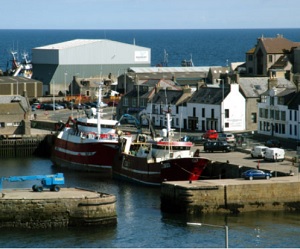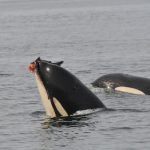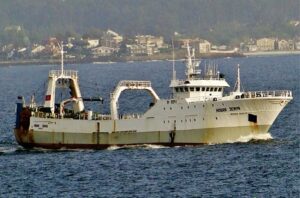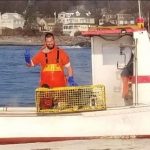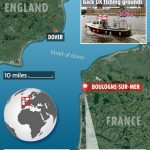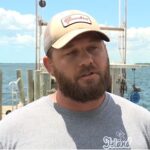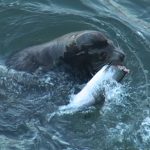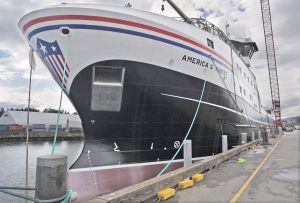Tag Archives: Coronavirus
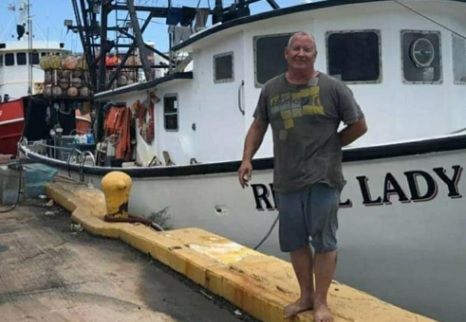
UPDATED: American fisherman detained entering British Virgin Islands – New Jersey delegation aware
An American longline fishing boat captain has been in jail for a month after he was detained in the British Virgin Islands on June 8 for traveling into BVI waters during coronavirus border closures. Now he is facing criminal charges and a monthslong wait in a sweltering island prison cell. Michael Foy, who lives in Puerto Rico and left the island May 29 on a fishing expedition, was initially detained for illegal entry into the British Virgin Islands, but at his June hearing he was also unexpectedly charged with illegal fishing. >click to read< 13:21
New Jersey Senators write Deputy Governor on fisherman’s arrest – “We are aware that our constituent, Michael Foy, has been detained in Tortola and have been in communication with the State Department and the [United States] Embassy in Barbados regarding the case,” according to the June 30 letter signed by Senators Cory Booker and Robert Menendez and Congressman Andy Kim. >click to read< 10:09 7/11/20
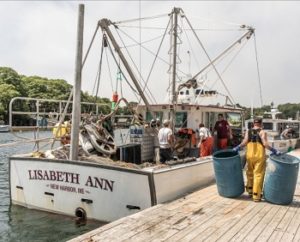
Prime Lobster Season Is Here, but Mike Dawson Isn’t Celebrating.
Mike Dawson (self-employed) Location: New Harbor, Maine Employees: 1, Status: Open, essential industry. The lobsters have just started to “come on” for the 2020 season, which in the lexicon of a Maine lobsterman means the annual lobster migration and catch has begun for the summer. Normally, 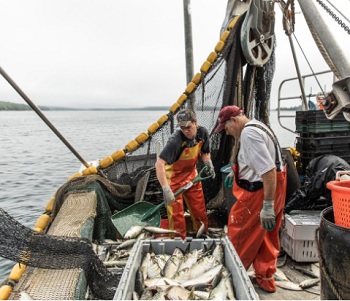 that would signal a time for the state’s 5,000 lobster harvesters to spend all their time setting and hauling traps. Not this year. This season is marked by weak demand from restaurants across the country and seafood processors that are taking less meat during the coronavirus pandemic. International markets have slammed shut. As a result, lobster prices are weak.Some lobstermen are still sitting on the sidelines, collecting unemployment. Others, like Mike Dawson, who fishes off New Harbor, Maine, have diversified by catching pogeys, or bait fish, in addition to catching lobster. 16 photo’s, >click to read< 16:05
that would signal a time for the state’s 5,000 lobster harvesters to spend all their time setting and hauling traps. Not this year. This season is marked by weak demand from restaurants across the country and seafood processors that are taking less meat during the coronavirus pandemic. International markets have slammed shut. As a result, lobster prices are weak.Some lobstermen are still sitting on the sidelines, collecting unemployment. Others, like Mike Dawson, who fishes off New Harbor, Maine, have diversified by catching pogeys, or bait fish, in addition to catching lobster. 16 photo’s, >click to read< 16:05

Northern Right Whales Are on the Brink, and Trump Could Be Their Last Hope
The task of responding will fall to an unlikely champion, President Trump, whose recent appeals for support from Maine lobstermen could clash with the task of saving the right whale. Peter Corkeron, a senior scientist at the New England Aquarium who spent nearly a decade chronicling the gruesome deaths of right whales as the director of the National Oceanic and Atmospheric Association’s research program for large whales, said he feared the listing would have little impact. “Lobstermen certainly recognize the dire circumstance that the right whale species is in right now,” Patrice McCarron, “We’re in this awkward situation where right whales are not doing great, and it’s certainly not the fault of the commercial fisheries.”PEER also filed a complaint last year with the inspector general of the Commerce Department, which oversees NOAA, arguing that federal officials intent on reopening fishing areas have been ignoring their own scientists on climate change as well as other threats to whales. >click to read< 11:37
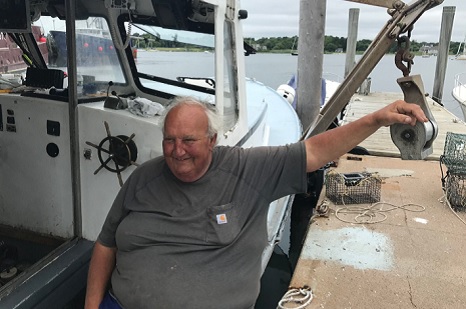
Bob Guzzo Talks Quotas, Offshore Wind, Coronavirus, and Fishing out of Stonington, Connecticut
“We’re giving up traditional fishing grounds that we’ve had for hundreds of years, that have fed the country, that are now going to light a light bulb and it’s not going to be worthwhile,” Guzzo said of the proposed wind farms located in federal waters. The location of the wind farms also destroys longtime fisheries, said Guzzo. “They’re taking away places that we’ve fished for this country over hundreds of years and we’re losing that ground,” he said.,, Quotas and Coronavirus, “I got tired of throwing fish overboard, I could never stand it. I started too long ago and never had to do this. The way they make you fish today is a crime,” >click to read< 08:01
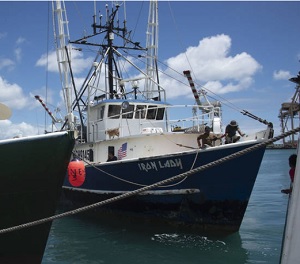
Honolulu mayor announces new ‘fish-to-dish’ program to help Hawaii’s struggling fishing industry
“We have an incredible longline fishing industry,” said Caldwell during a news conference at Pier 38, “and local fishermen who go out every day in grueling conditions, catching fish and bringing it back to feed our residents and visitors.” But the longline fishing industry has lost an estimated $10 million, or about 60% in revenue, since mid-March lockdowns went into effect due to the pandemic, Caldwell said. In an effort to help, he said the city is committing $2.6 million in federal coronavirus funds to help the fishing industry get back on its feet. The “fish-to-dish” program will work in partnership with the Hawaii Longline Association, the United Fishing Agency, which runs the fish auction, and Hawaii Seafood Council to distribute fish to the community.>click to read< 08:23

The 2020 P.E.I. spring lobster season that almost didn’t happen because of coronavirus, comes to an end
The spring lobster season on P.E.I. ended July 4 after a late start on May 15, in a year when fishermen faced low prices and catch limits due to a shortage of labour in processing plants. After losing the crucial first two weeks of the season, fishermen saw a glut of lobsters, pulling in more than buyers would take. There are eight processing plants on Prince Edward Island that deal with lobster. “At the end of the day, we had a season. That meant job creation and it also meant wealth creation for the province during a time when a lot of the other sectors were suffering,” >click to read< 19:30
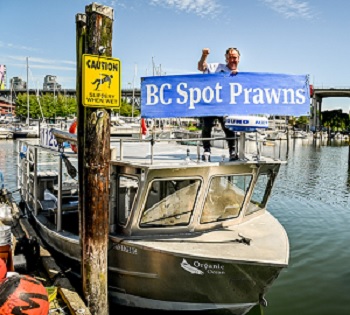
Shrimper Steve, the Spot Prawn King
Before the mid-2000s, when the first Spot Prawn Festival took place in Vancouver and The 100-Mile Diet was published, nearly all of B.C.’s spot prawns were sent overseas. The shellfish were brand new to most consumers, explains Steve Johansen, a fisherman with Organic Ocean who sold 100-Mile-Diet author J.B. MacKinnon his first spot prawns and launched the festival with Vancouver chef Rob Clark in 2007. “Even people who lived in B.C. all their lives didn’t know what a spot prawn was, and the other half of those people thought tiger prawns were from B.C., whereas they’re all raised in Southeast Asia.” Spot prawns are the largest of seven commercially harvested shrimp species in British Columbia. >click to read< 09:32
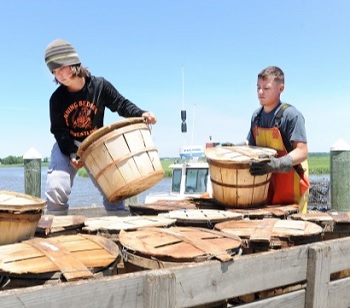
Delaware: Hungry for holiday crabs? Better get out the wallet – “best price that we’ve gotten for crabs in 26 years,,,”
This year’s crabbing season didn’t start out quite so hot for Smyrna’s Brian Hoffecker, Thankfully for Mr. Hoffecker, along with many other commercial crabbers in Delaware, things didn’t stay that cold for too long. With Independence Day coming up Saturday “This weekend is a holiday,” said Mr. Hoffecker. “I’ll tell you what, this will be my 26th year or something on my own (crabbing) and this is the best price that we’ve gotten for crabs in 26 years. I don’t know if it had anything to do with the coronavirus or with the restaurants being shut down,,, >click to read< 17:25
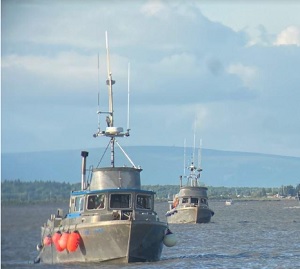
Bristol Bay Fisheries Report: July 2, 2020
Fish are picking up around the bay. The run leapt past the 4 million fish mark and is approaching 5 million, and the runs in the Naknek-Kvichak and Egegik both passed 1 million yesterday. Egegik had the largest daily harvest. In the Nushagak, the total run passed 2 million. Coronavirus update (Covid-19), U.S. House and Senate extend application deadline for PPP,Audio report, >click to read< 14:02

N.S. Premier Stephen McNeil: China not ‘reasonable’ requiring lobster shippers to assume Coronavirus liability
“I don’t believe that the requirement to accept liability on live seafood going into that marketplace is a reasonable one,” McNeil told reporters in Halifax Thursday. China is the second largest market for Canadian lobster, with exports of live lobster alone in 2019 valued at $457 million, most of it supplied by inshore fishermen from Nova Scotia. That demand has upended traditional economics in the fishery. Even as landings soared in recent years, the increased demand from China helped keep prices up. Earlier this year, it came crashing down when China shut down because of the Coronavirus pandemic. >click to read< 09:50
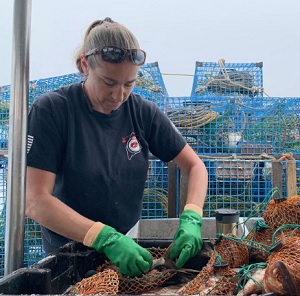
In Lobster Town U.S.A., When the industry suffers, the pain ripples.
Blaine Olsen, a lifelong lobsterman, was navigating his 30-foot boat off the coast of Stonington, Maine, when his sternman, who’s also his wife, yelled above the diesel engine’s din about the pittance the local cooperative was paying harvesters. He shot Ginny a doleful stare for a good five seconds. “Holy sh-t, man,” he said. “It costs us $600 a day to go out.” The dock price, $2.25 a pound for soft-shell lobsters, was half what it was a year ago, making it virtually impossible to earn a profit. The novel coronavirus has barely touched the public health of this corner of rural down east Maine, with Hancock County reporting just 16 cases and one death as of June 30. Its economic health is another matter,,, >click to read< 10:50
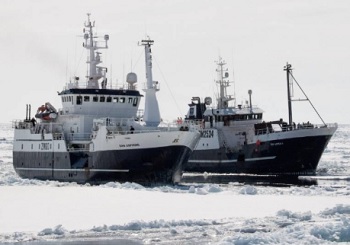
Fishermen stuck in the Falklands arrested after a fight at Dino’s Bar, will not derail rescue mission
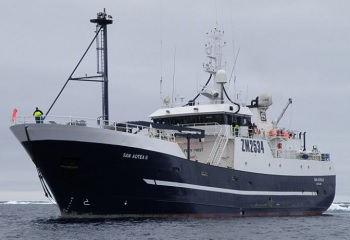
Kiwi longliners meet at Falklands; San Aotea on Thursday leaves for New Zealand
A 25-day slog across the frigid Southern Ocean is finally over for a New Zealand Sanford fishing vessel on a mercy mission to help the crew of a fellow fishing boat who spent months at sea in rough waters near Cape Horn due to the Covid-19 lockdown. The San Aotea arrived in the Falkland Islands on Monday and teamed up with the crew of the San Aspiring, and the two ships are now are berthed together at Port Stanley. The crew on the San Aspiring had been fishing for toothfish and doing scientific research off South Georgia since February. They carried on fishing throughout the lockdown. >click to read< 08:31
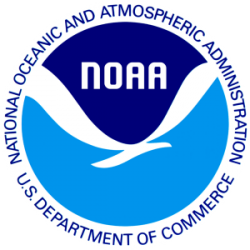
Re-Deploying Observers and At-Sea Monitors: Northeast Observer Waiver Extended Through July 31, 2020
Although we had announced plans to resume observer deployments on July 1, we recognize the Coronavirus pandemic continues to evolve and as such, has required us to re-evaluate and adapt to changing circumstances. In response, NOAA Fisheries is extending the waiver granted to vessels with Greater Atlantic Region fishing permits to carry human observers or at-sea monitors through July 31, 2020. This action is authorized by 50 CFR 648.11, which provides the Greater Atlantic Regional Administrator authority to waive observer requirements, and is also consistent with the criteria described in the agency’s emergency rule on observer waivers during the COVID-19 pandemic. >click to read< 16:00

#FishermensLivesMatter: Until this pandemic is over, say no to fishery observers being placed on fishing vessels
On July 1st the Trump Administration’s agency, NOAA will require that fishing vessels resume taking fishery observers on their fishing trips. Due to the Coronavirus pandemic these activities have been suspended for almost three months due to the danger of spreading the deadly disease among the
fishing industry and their families. Fishery observers are required by National Marine Fishery Service regulations to observe commercial fishing operations in almost all of our countries fisheries based on various criteria that include likelihood of interaction with marine mammals or other protected species, amount of bycatch in each fishery, adherence to regulations, and anything else they can justify to support this huge taxpayer money gobbling con game they have created. >click to read< by Jim Lovgren #FishermensLivesMatter 22:27
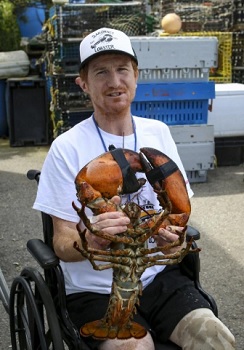
Sakonnet Lobster found a way to deal with Coronavirus. Door-to-door delivery
Doug Mataronas saw what restaurants were doing during the initial weeks of the governor’s orders to stay at home, so he figured he’d give it a try. He started delivering fresh lobsters to the doors of customers in Little Compton and Tiverton, and then went as far as Boyd’s Lane in Portsmouth — all the way over the Sakonnet River Bridge — where customers who placed orders online or by phone would meet him at the Park and Ride. Mataronas thought the deliveries would only last for a short time while restaurants were closed, but he continues to get orders from people for his Saturday deliveries, though the retail delivery orders have slowed a bit since restaurants have started to open up to outdoor dining. >click to read< 08:07

Coronavirus results in falling New England lobster prices
The American lobster fishing industry, based mostly in Maine, has had to cope with a supply chain that has been disrupted by the pandemic. Wholesale prices were lower than previous years this spring, and consumers started to see lower prices at markets earlier in June. Members of the industry said prices could likely fall more in July. America’s lobster catch typically picks up in the summer, when lobsters shed their shells and reach legal trapping size. This year, fishers will likely bring lobsters to the docks in a time when restaurants are slowed or shuttered and seafood processors aren’t taking nearly as many of the crustaceans, industry members said. >click to read< 08:25
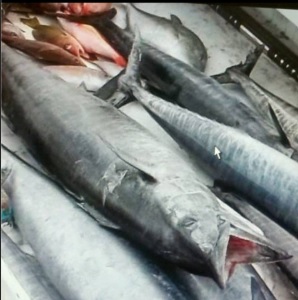
Hawaii’s impact from Corona-Local Fishermen
Aloha Kakou, I am a small commercial fishing/charter boat owner and wanted to bring awareness to our local micro-industry’s condition due to Coronavirus and lack of need for our product. I saw a report regarding the Hawaii long-liner fishing industry, but wanted to express how our local independent fishing and charter boat business have been gravely impacted. So many local fishermen whos sole income is from fishing and selling their catches as well as the charter fishing industry have lost 90-100% of their income due to tourism shutdown and Covid restrictions. >click to read< Mahalo for your time and interest in this information. Capt. Jerry Gillgren, F/V Jovan Lee 16:05
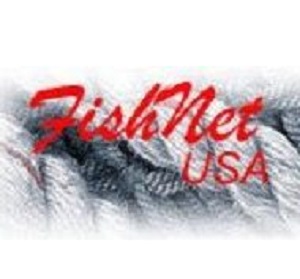
An East Coast Perspective on Coronavirus Impacts
This was initially to be about how the New Jersey commercial fishing industry was coping with the coronavirus crisis. However, there is a seemingly infinite number of websites running commentaries on the national and/or international aspects of the ongoing pandemic in general and, surprisingly, as it specifically applies to and as it affects commercial fishing and the seafood industry. Considering this, sharing more than an overview of what the New Jersey industry, or at least that part of it that I have been in touch with, would probably not have much of an impact. But happily, at this point it seems that U.S. consumers aren’t really as averse to preparing quality seafood at home (when it isn’t available or is only limitedly available elsewhere) as most of us have believed. >click to read< By Nils Stolpe 12:05
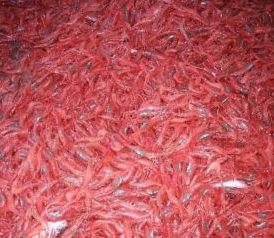
2020 shrimp price disagreement for NL fish harvesters goes to arbitration
There’s 58 cents worth of disagreement over shrimp prices between the union that represents fish harvesters and the organization that represents processors in Newfoundland and Labrador. According to the union, the Association of Seafood Processors (ASP) proposed 70 cents per pound while the FFAW proposed $1.18. The matter is now before the Standing Fish Price Setting Panel, which met today in St. John’s to hear the proposals from both sides.,, The union also said, “This is a challenging year for shrimp, as the market is lower than it was last year.” However, the union also said the 70 cent offer from the ASP “is a price that cannot be justified by any rational assessment of the market.” >click to read< 16:07
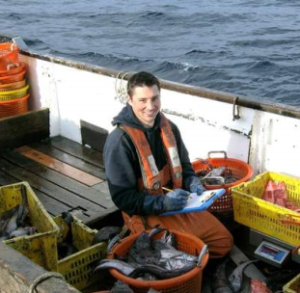
Coronavirus: LI fishermen concerned about restart of onboard monitoring program
Some fishermen in Montauk this week said they plan to refuse to allow the federally mandated observers and monitors to board their boats, given the resurgence of COVID-19 around the country and the uncertainty around potential infection from observers, some of whom are housed in Hampton Bays, once considered a Long Island hot spot for the virus. The federal agency ordering the resumption of monitoring said it has enacted a series of safety protocols to protect fishermen and observers, including requiring that observers quarantine for 14 days before the start of a fishing trip. >click to read< 17:14
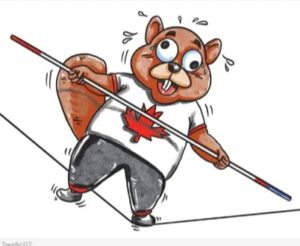
Chinese tabloid blasts Canada over lobster dispute
Communist Party media in China rebuked and threatened Nova Scotia lobster shippers this week for expressing concerns over new roadblocks to getting products into China. The party tabloid Global Times says recent border measures are about food safety after a COVID-19 outbreak was linked to a Beijing food market, “rather than an excuse to target any specific country.” “It’s Canada’s choice to export to China, and Canada needs to abide by Chinese regulations, which may be adjusted when necessary in accordance with the COVID-19 situation,” Bai Ming, a research fellow at the Chinese Academy of International Trade and Economic Co-operation, >click to read< 09:28
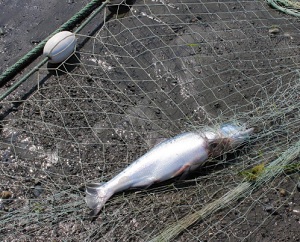
“Let’s hope this is one hell of an anomaly,” – Pandemic throws a wrench in salmon market
“If you want to categorize the bad news, the biggest factors are the sheer operating logistics for this industry in dealing with this virus, and keeping the workers safe,” he explains. “That’s one huge complexity. The second is the drastic drop-off in restaurant consumption, and the third is the drastic decline in people’s incomes. Those are the three major hits.” In a normal year, most of the uncertainty in the salmon market comes from the run itself; how the harvest compares to the previous year and how processors will keep up. >click to read< 08:49
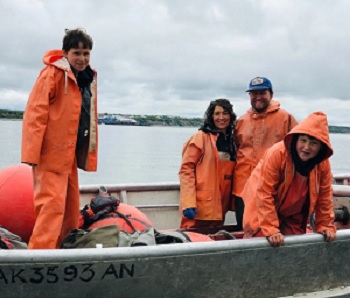
How Coronavirus Is Threatening Alaska’s Wild Salmon Fishing Season
A Brooklyn winemaker travels north to Bristol Bay each summer to net the red salmon that support his family. This year he’s faced with a tough ethical and economic choice. Mr. Nicolson, 45, spends much of the year working at Red Hook Winery in Brooklyn, where he is the managing winemaker, but his main income is drawn from Iliamna Fish Company. The business, which he and two cousins own, sells Alaska red salmon directly to thousands of shareholders, most of them in New York and Portland, Ore., as well as to a few high-end restaurants and stores, including the Park Slope Food Co-op in Brooklyn. >click to read< 19:25
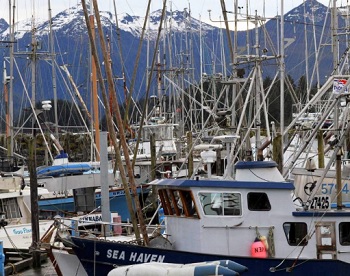
Coronavirus is making it difficult for Whatcom’s commercial fishing fleet this season
A new report from the Regional Economic Partnership at the Port of Bellingham indicates the local fishing fleet is dealing with a host of hurdles this summer, particularly for fishing boat captains who want to go to Alaska. Crew safety is proving to be particularly tough to figure out, as shown by the three American Seafoods fishing boats that had more than 100 crew members test positive for the virus after docking at Bellingham Cold Storage in late May and early June. The report surveyed 69 businesses tied to the industry, including 59 commercial fishing boats. >click to read< 09:11
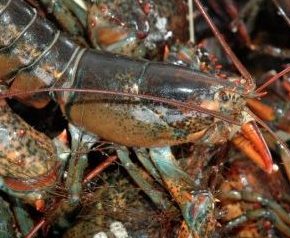
Global Affairs Canada takes no stance on whether lobster exporters should sign Chinese liability form
Chinese customers want Canadian shippers to sign a declaration their lobster is free of COVID-19, and assume liability if it’s detected in China. The stipulation has alarmed shippers like Osborne Burke of Victoria Co-op Fisheries, a Cape Breton company that ships frozen lobster to China. “Absolutely under no condition would we sign anything,” he said. Burke, who is also president of the Nova Scotia Seafood Alliance, does not recommend members sign anything either.,, The province declined comment on the matter Monday. >click to read< 07:52
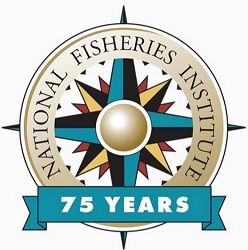
Seafood from America is safe.
National Fisheries Institute Statement on the Safety of Seafood from the United States – Seafood from America is safe. The World Health Organization, United National Food and Agriculture Organization, and all major national food safety agencies report there is no connection between seafood and COVID-19. Simply stated, people cannot get COVID-19 from eating seafood. Specific to imported seafood that Chinese families enjoy, experts at the Chinese National Health Commission stated, “There’s no evidence so far showing salmon are the origin or intermediate hosts of the coronavirus.” Consumers in China and in other countries should be aware that seafood portioned and prepared in America must comply with the rules and regulations of the United States Food and Drug Administration to ensure safe food. >click to read< 17:38
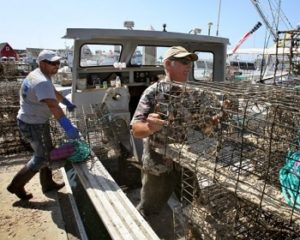
Fresh fish market proposed for Oceanside harbor to sell Seafood direct to consumers!
A group of local commercial fishermen hopes to create a weekly market at the Oceanside harbor where they could sell their catch directly to consumers. The idea sprang up as a result of the Coronavirus crisis, which closed sit-down restaurants everywhere. That greatly reduced the fishermen’s sales and left them looking for new outlets. Some of them decided to cut out the middleman and try selling their products to people at the harbor.,, Among the issues to be decided is whether the market will be overseen by a board of directors, elected by the fishermen, that would establish rules and guidelines for the venture,,, >click to read< 10:41
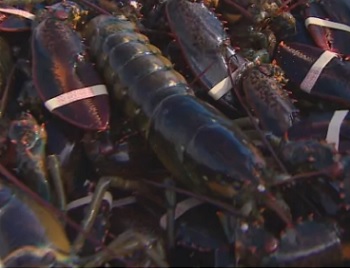
Canadian lobster to China hits another roadblock, demand a signed declaration live lobster is Coronavirus free
Canadian businesses that export lobster to China have run into another border roadblock. On Friday, Chinese importers started demanding a signed declaration that Canadian live and processed lobster is free of COVID-19 before it can enter China. “It’s a bold thing to ask and we as Canadian exporters should push back,” says Stewart Lamont of Tangier Lobster in Nova Scotia. His company flies lobster to mainland China. Lamont has refused to sign the declaration, which makes Canadian companies liable in the Chinese court system if there is a problem. >click to read< 18:52






